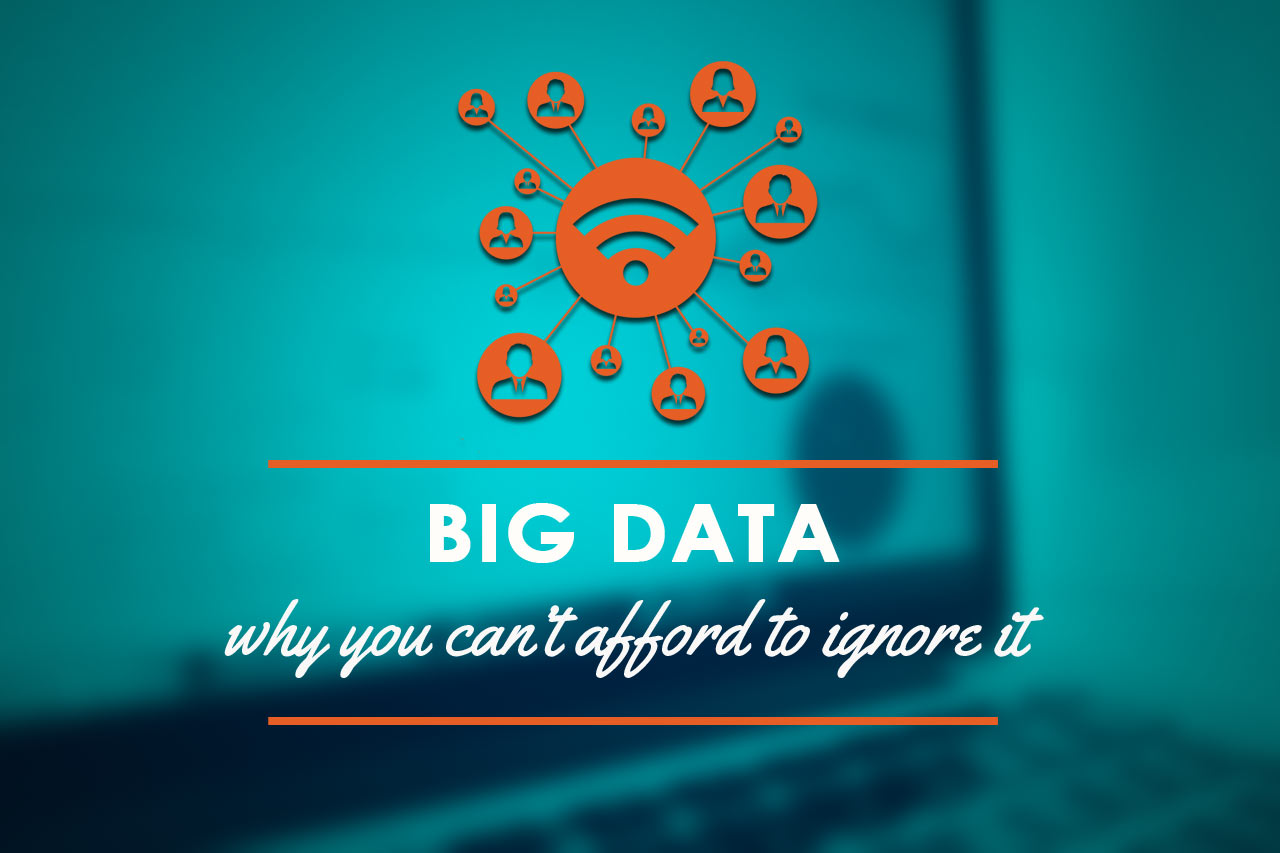Big Data: Why you can’t afford to ignore it.

Due to the emergence of new technologies, communication means like social networking sites & devices, the amount of data being produced by mankind is increasing rapidly. Everything we do using our devices is increasingly leaving a digital trace of data which can be used and analyzed. Since the beginning of time until 2003, the amount of data that was generated by humankind was 5 billion gigabytes. In 2011, the same amount of data was generated in every two days, and in 2013, in every ten minutes. The rate is rising at a rapidly. All this information is extremely useful, but unfortunately, most of it is neglected.
Data is now being generated through simple everyday activities like reading books and listening to your favorite music. E-book readers and music players collect data on what you are reading or listening to. Your browser collects details of what sites you are accessing or what you are searching for. Do you use a credit card? If yes, then the credit card company collects information on where you shop and what you buy. Every activity on digital media leaves a trace of data.
Phone conversations are being recorded; emails and online conversations are digitally recorded. All the images being shared on social media sites every second all leave a trace. That is a lot of data! Nowadays there are smart TV’s, smart watches, smart alarms, etc. With the emergence of the Internet Of Things, (IOT), everything is becoming connected to devices. Now you don’t have to groan about getting out of bed to switch the lights on/off. You can do that simply by using your smart phone.
So what does big data really mean?
Big data simply refers to the ability of humans to make use of the exponentially growing amount of data. The amount of data available is so large and complex that it is impossible to manage with traditional software tools. Big data involves data creation, storage, retrieval and analysis and is defined in terms of volume, velocity and variety:
• Volume: This refers to the huge amount of data being generated every day. In the year 2000, a PC might have had 10GB of storage. Today, Facebook generates more than 500 Terabytes of data every day. Many factors contribute to the increase in data volume; unstructured data flowing in from social networks, the influx of smartphones, increasing amount of sensors being embedded into everyday objects and many more.
• Velocity: This refers to the rate at which new data is being generated and moving around. Ad impressions capture user behavior at extremely fast speeds, social media messages go viral in minutes, stock trading algorithms show market changes within seconds, online gaming portals support multiple users at the same time, etc.
• Variety: This simply refers to the type of data being used. Data comes in different formats. In the past, people focused on structural data which was in smaller volumes and with fewer updates. Today, more than 80% of the data is unstructured data which includes images, text, media logs etc.
Why should big data matter to you?
There’s an abnormal amount of data in terms of volume, velocity and variety, how can this be beneficial to you? Acquiring large amounts of data is not the issue; it is what you do with the data that counts. Big data technologies such as cloud computing together with latest software and analysis allow us harness relevant data and analyze it to gain insights and add value to businesses.
These insights and analysis may lead to more substantial decision-making, thus greater cost reductions, added efficiencies and fewer risks for businesses. By combining big data and analytics it is possible to:
• Optimize and manage routes for package delivery & fleet management.
• Better understand and target customers, thus identify those who matter most.
• Improve health by understanding and predicting disease patterns.
• Improve law enforcement and security.
• Determine root causes of defects and failures in real time, saving money and lives.
The applications of big data are infinite and the ones stated above are just the beginning of a transformation into a big data economy.
To exploit the potential of big data, you would need an infrastructure that is capable of managing and processing large volumes of structured and unstructured data in real-time. Currently, there are various companies that offer these technologies including IBM, Microsoft, etc.
These cases are only a small part of the massive potential of big data, but one thing’s for sure. Big data offers a lot of opportunities to benefit from. Every organization has unique needs that require a different approach. Properly using the possibilities offered by big data will add value to your business and help you stand out from the competition.
Are you currently using Big Data for your business operations? How has big data helped you achieve your business goals? Feel free to share your opinion in the comment section below.
About the Author
Anthony Mathenge is a tireless seeker of knowledge & blogger who writes for Systech Limited, a company that deals in ICT solutions ranging from Cyber-security, Software testing, Unified Communications & Software Integration. Check out their blog here.




